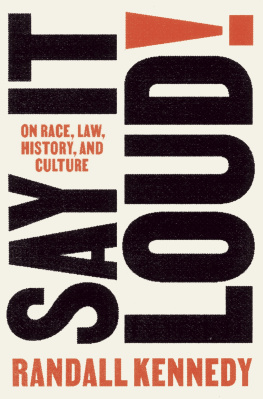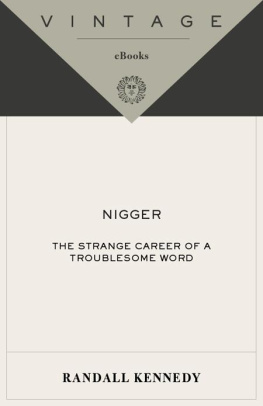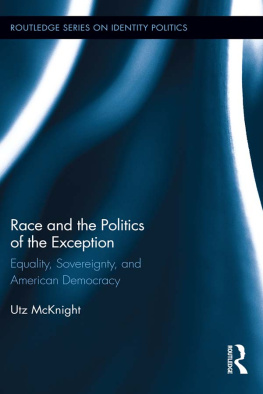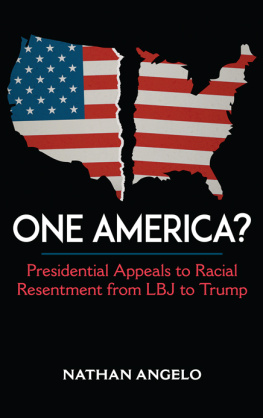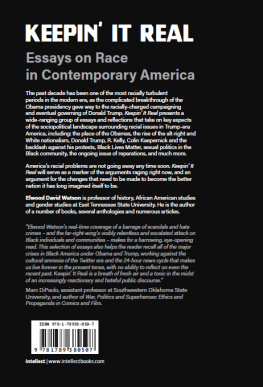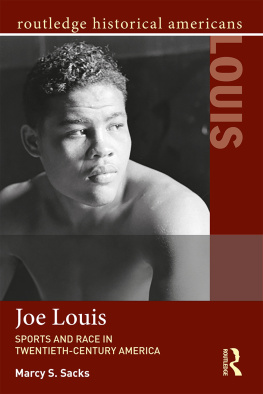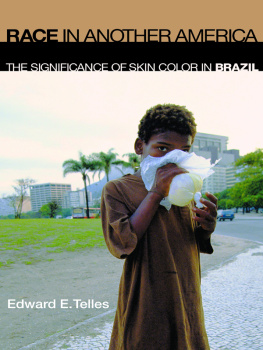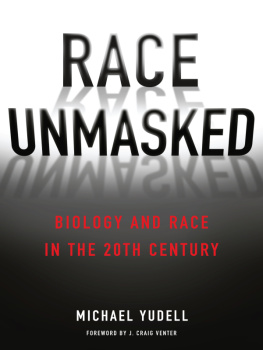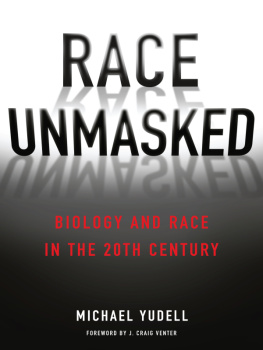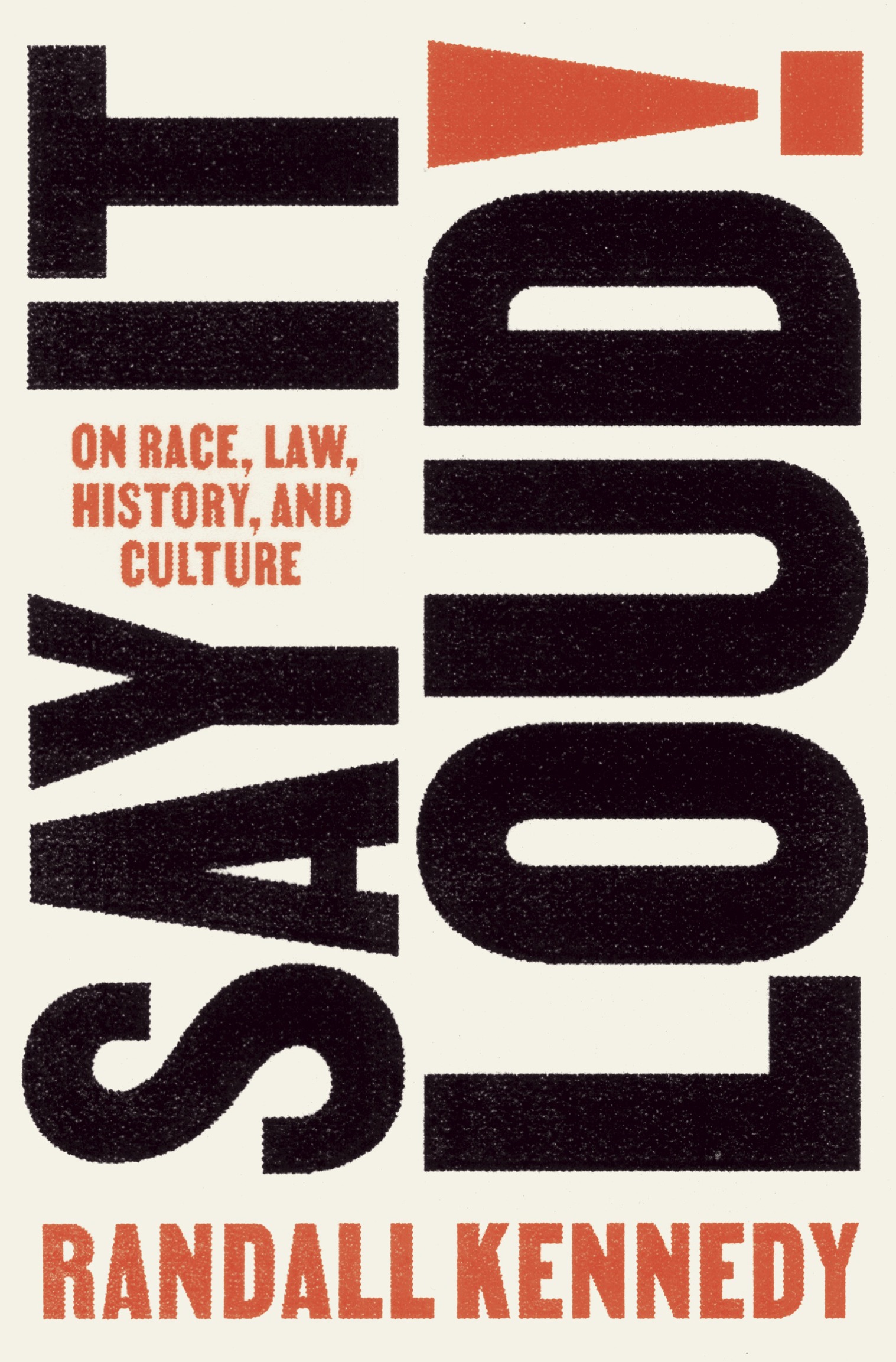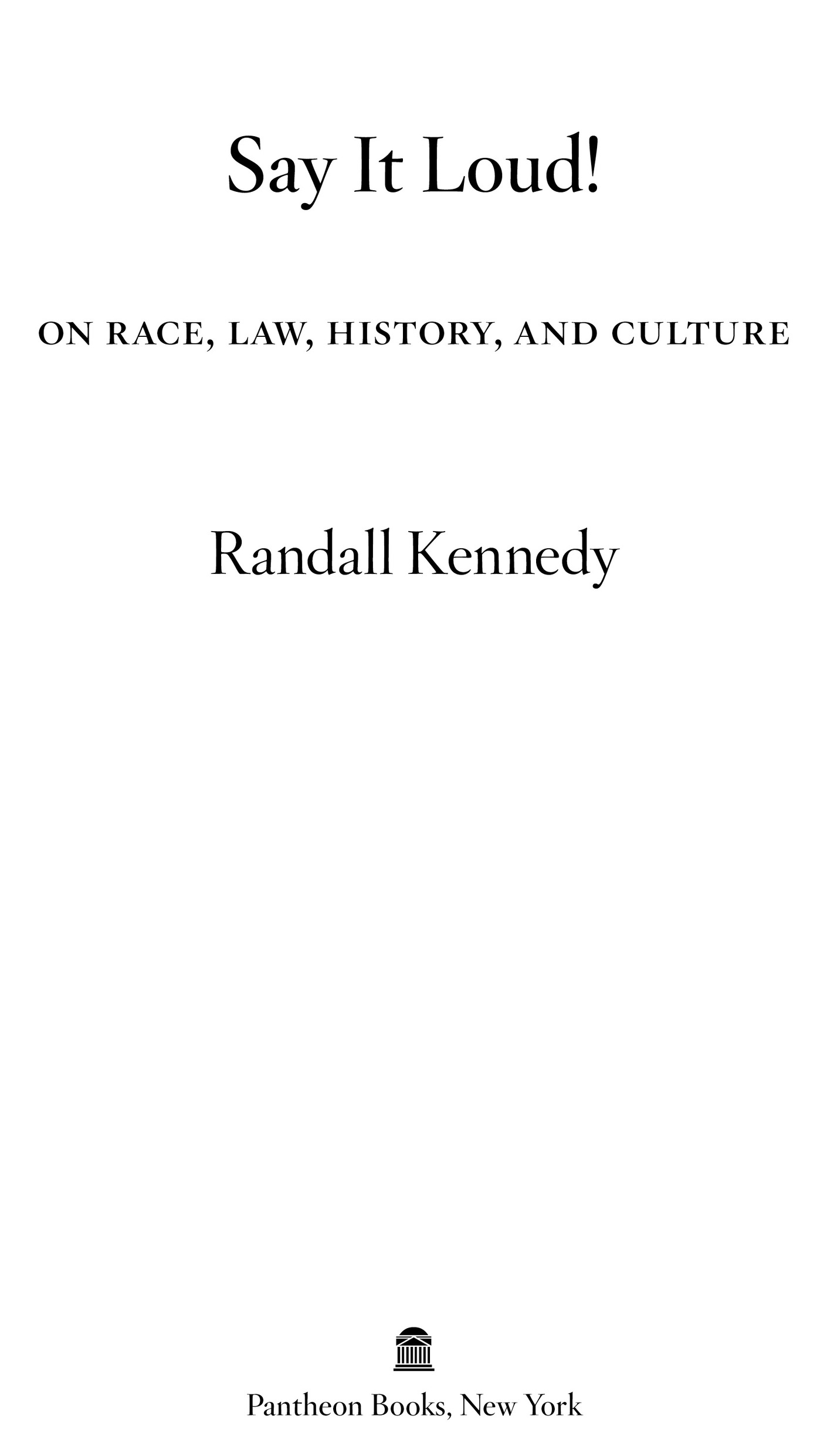Also by Randall Kennedy
For Discrimination: Race, Affirmative Action, and the Law
The Persistence of the Color Line: Racial Politics and the Obama Presidency
Sellout: The Politics of Racial Betrayal
Interracial Intimacies: Sex, Marriage, Identity, and Adoption
Nigger: The Strange Career of a Troublesome Word
Race, Crime, and the Law
Copyright 2021 by Randall Kennedy
All rights reserved. Published in the United States by Pantheon Books, a division of Penguin Random House LLC, New York, and distributed in Canada by Penguin Random House Canada Limited, Toronto.
Pantheon Books and colophon are registered trademarks of Penguin Random House LLC.
constitutes an extension of this copyright page.
Library of Congress Cataloging-in-Publication Data
Names: Kennedy, Randall, [date] author.
Title: Say it loud! : on race, law, history, and culture / Randall Kennedy.
Description: New York, NY: Pantheon Books, 2021. Includes index.
Identifiers: LCCN 2020055460 (print). LCCN 2020055461 (ebook). ISBN 9780593316047 (hardcover). ISBN 9780593316054 (ebook).
Subjects: LCSH: African AmericansLegal status, laws, etc. African AmericanCivil rights. African AmericansSocial conditions. United StatesRace relations. RacismUnited States.
Classification: LCC KF4757 .K46 2021 (print) | LCC KF4757 (ebook) | DDC 342.7308/73dc23
LC record available at lccn.loc.gov/2020055460
LC ebook record available at lccn.loc.gov/2020055461
Ebook ISBN9780593316054
www.pantheonbooks.com
Cover design by Linda Huang
ep_prh_5.7.1_c0_r0
For Mona Simpson
CONTENTS
Preface
The writings that follow are the impressions of a Black/Negro/Colored/African American law professor born in Columbia, South Carolina, in 1954, four months after the Supreme Court handed down Brown v. Board of Education. These essays chronicle people, events, arguments, ideas, and books that over the past quarter century prompted me to put pen to paper.
Three beliefs that are sometimes in tension with one another infuse these pages.
First, racism continues to be a major force in America. Nothing more clearly evidences its menacing influence than the astonishing rise of Donald J. Trump. His election to the presidency in 2016 revealed a prevalence of bias and tolerance for bigotry that many (including me) underestimated, even though an underlying social rot was evident. Dissidents had focused a bright light on racist policing and other wrongs. (See The George Floyd Moment and The Constitutional Roots of Birtherism.) And commentators had noted mounting evidence of racist reaction against President Barack Obama and all that he was perceived as representing. But few anticipated that status anxieties among whites would, when combined with other factors, propel Trump to the presidency given his glaring deficiencies.
The circumstances under which Trump was ousted from power put the United States in a light that is unspeakably sad. Yes, he was defeated; for that the world must be grateful. But the repudiation was by no means overwhelming. Trump attracted the support of almost half of the American electorate (around seventy-four million voters) and deepened the influence of his baleful ethos within an increasingly right-wing and militant Republican Party. That he received as much support as he did should be deeply disturbing given the incompetence of his response to the deadly COVID-19 pandemic, his efforts to sabotage the electoral process, the foolishness of his reaction to ecological threats, the loathsomeness of his personal conduct, his solicitude for tyrants globally, the cruelty of policies he sponsored (the separation of children from their parents pursuant to immigration policy was perhaps the most atrocious), not to mention his indifference to threatened violence by supporters and his incitement of various prejudices. Trump did not create racism, and racism is but one facet of the catastrophe his presidency represents. But the racism he exploited, legitimated, and helped to popularize is an important ingredient in the wicked stew that has poisoned the country. For most of my life I have been an optimist regarding the possibility of creating a racially just republic as part of a broader realization of the promise of America. (See Shall We Overcome? Optimism and Pessimism in African American Racial Thought.) That hopefulness has been profoundly shaken, though not altogether extinguished, by the Trumpian turn that will shadow the country for the foreseeable future.
Second, there is much to be inspired by when surveying the African American journey from slavery to freedom. Blacks encountering racist impediments have responded repeatedly with brave demands for racial decency and social justice in general. (See Frederick Douglass: Everyones Hero and How Black Students Brought the Constitution to Campus.) People of every complexion have played a role in that epic struggle and continue to be shaped by it. (See J. Skelly Wright: Up from Racism, Isaac Woodard and the Education of J. Waties Waring, and On Cussing Out White Liberals: The Case of Philip Elman.) Transfixed by impressive figures in that saga, I insist that they be taken seriously, which means acknowledging their vices as well as their virtues. (See Remembering Thurgood Marshall and Derrick Bell and Me.) Victimization does not exempt individuals from moral obligations. Even those enslaved should be held to high moral standards. (See Should We Admire Nat Turner?) And being on the side of antiracism is no inoculation against error. The thinking and conduct of those challenging injustice must be carefully examined because they, too, like all of us, are prone to narcissism, thoughtlessness, and abuse of power. (See Black Power Hagiography and The Princeton Ultimatum: Antiracism Gone Awry.)
Third, social relations are complex and messy. We protest against the memorialization of figures who propounded antiblack racism while simultaneously celebrating figures who propounded bigotries of other sorts. (See Race and the Politics of Memorialization.) We urge individuals to be independent while insisting that there are certain boundaries of loyalty that cannot be crossed without incurring the stigmatizing label of traitor. (See Policing Racial Solidarity and Why Clarence Thomas Ought to Be Ostracized.) We condemn racial discrimination while expressly limiting the power of law to erase it because of our rightful attentiveness to freedom of expression and prudential fear of excessive governmental intrusiveness. (See Racial Promised Lands?) In the essays that follow, I luxuriate in the messiness. I savor the paradox and irony. I try to share with readers my sense of surprise, ambivalence, and humility while seeking to understand the race line in American life.
1
Shall We Overcome?
Optimism and Pessimism in African American Racial Thought
Take courageye Afric-Americans! Dont give up the conflict, for the glorious prize can be won.
Peter Osborne (1832)
In the quest for equality, black folks have tried everything. Weve begged, revolted, entertained, intermarried, and are still treated like shit. Nothing works, so why suffer the slow deaths of toxic addiction and the American work ethic when the immediate gratification of suicide awaits?

